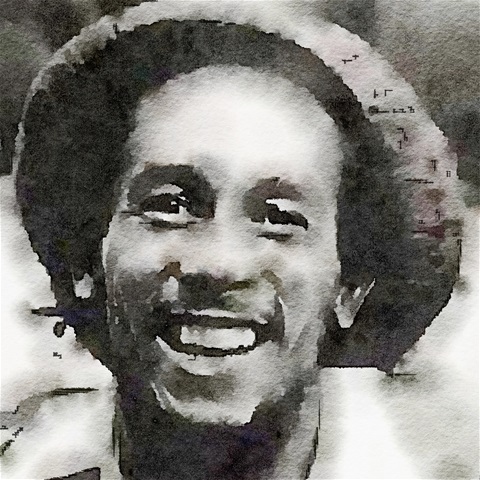The Reggae Tradition - Lecture - September 19, 2018
Reggae is a style of music that has deep roots from 1960’s Jamaica and that evolved out of the Ska and Rocksteady genres that were popular just prior to the flower power era, also borrowing influence from Rhythm & Blues as well as Jazz.
The term Reggae evolved from the Jamaican word for rags, or intimates something raggedy looking. The etymology also points to the word “streggae” which in Patois means a loose woman. It is also interesting that in Italian, the word strega means ‘witch’ ~ however, there are differing viewpoints on exactly how the term Reggae was coined and who first derived its meaning. We now mostly associate Reggae with the music, yet also with the Rastafarians who were the first fathers of the genre.
Rastafari is an Abrahamic religion (one of the three religions that stems from Judaism and that worships the God of Abraham or Yahweh) that began in Jamaica in the 1930’s, among the very poor Afro-Jamaican communities, and appeared to be a response to the British Rule that was imposed at the time. The belief that the world’s poor and persecuted Blacks were God’s Chosen People is at the core of this dogma, and it gave them strength to believe that the Emperor Haile Selassie of Ethiopia was the Messiah, and that he would return the Black people to Africa.
The ‘father’ of Reggae is said to be Peter Tosh, but most people associate the genre with Bob Marley, one of the most famous musicians and Rastafarians from that era. It is Marley’s tunes & lyrics that have become the anthems of freedom (Redemption Song)* and the “feel-good” vibe, the political statements that would shine a light on the plight of African Slaves (Buffalo Soldier), and also speak to the benefits of pot smoking and the fight to legalize it (Kaya). The Rastafarians do not embrace Western medicine and their use of cannabis is widely known as a healing agent, and heavily associated with the Reggae sound and feeling.
The Reggae beat is a very distinctive, instantly recognizable rhythm, with its guitar on the accented off-beat, and is always in 4:4 or 2:4 time, and the groove is held by the bass guitar and drums. As mentioned above, the subject matter is almost always about freedom or happiness, however, *Redemption Song is one of Marley’s tunes that does not have a Reggae feeling to it, but rather, more of a folk song approach.
Reggae beats and vibe have been borrowed by many other artists, including Sting in The Police’s Roxanne and Don’t Stand So Close to Me, as well as Zeppelin’s D’Yer Maker, and even the Gypsy Kings in their “Escucha Me” piece. https://youtu.be/8S5v6Sa-rcA

Latest comments
This is STILL a perfect description of the worst president of the USA ever.
Keep sharing like this more with all of us.
I really like the stuff which ahds hared herea bout this place. I will try to go there after taking the tour by http://www.goldenbustours.com/.
My dear Kira, your poignant words touched me deeply. To know that you were treated like this is just unbelievable. Thank you for sharing.